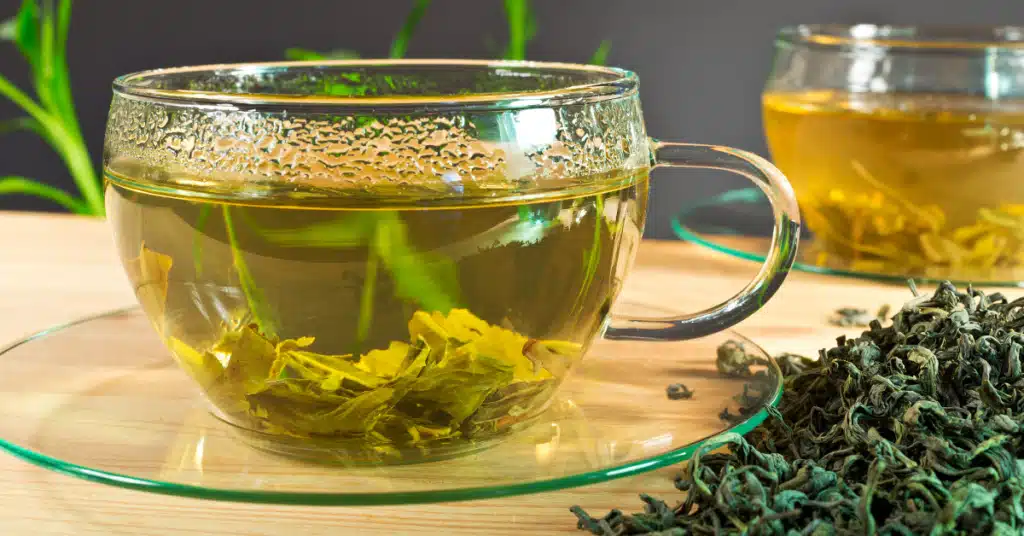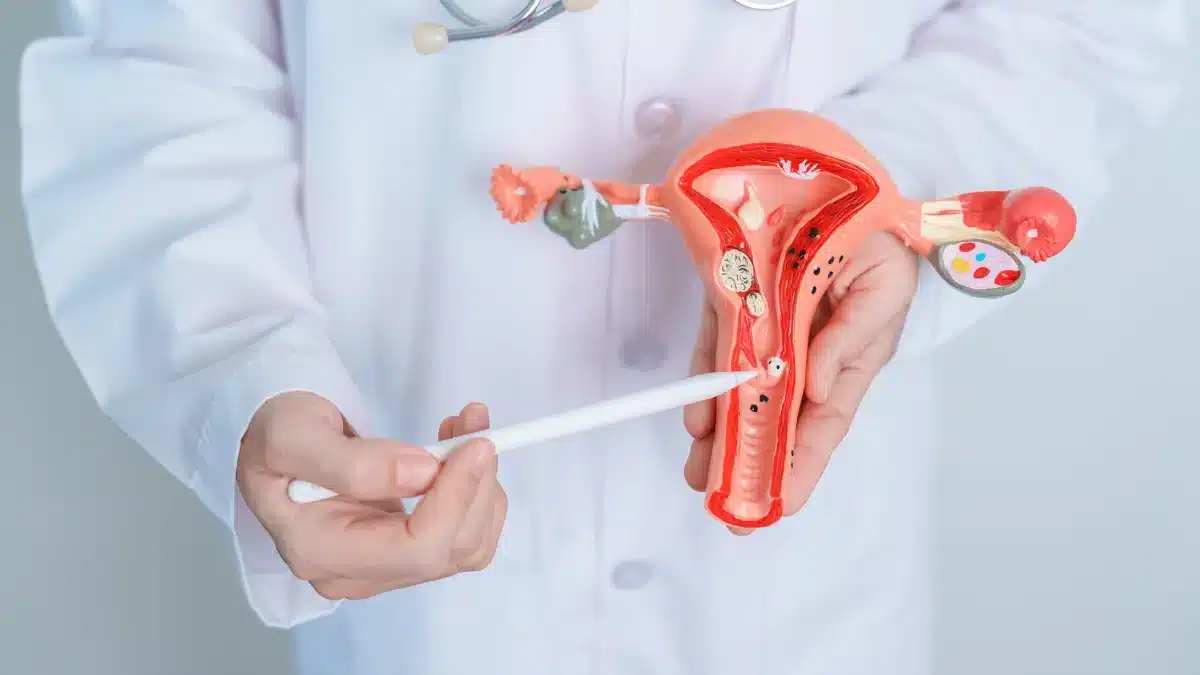7 Foods For Shrinking Fibroids Effectively
Uterine fibroids are typical growths formed from muscle and tissue in the uterus wall.
They are also called leiomyomas or myomas and are usually non-cancerous in nature.
As per the U.S. National Institutes of Health (NIH), fibroids affect approximately 20-25% of women in their reproductive years.
Although the exact cause of fibroids is uncertain, healthcare providers suggest that hormones like Estrogen and Progesterone contribute to their growth.
The question that arises is whether dietary changes or having specific foods can help in shrinking fibroids or not.
To verify its accuracy, read this article highlighting 7 foods for shrinking fibroids for thorough understanding.
Cruciferous vegetables

Cruciferous vegetables like broccoli, cauliflower, cabbage, and kale are thought to assist in reducing fibroids by supporting liver detoxification and removing excess Estrogen from the body.
These veggies have compounds that aid natural detox, potentially reducing Estrogen linked to fibroid growth.
Although direct evidence of fibroid shrinkage by these vegetables is lacking, they’re commonly advised as part of a balanced diet.
This diet could help maintain hormone balance and potentially curb fibroid growth.
Individual responses to dietary changes vary, so consulting a healthcare provider before making significant dietary changes, especially for addressing conditions like fibroids, is essential.
Fibre-rich foods
Including fiber-rich foods like fruits, vegetables, and whole grains in your diet may slow or prevent fibroid growth.
These foods are packed with fiber, which supports weight loss, hormone balance, and stable blood sugar levels.
Fiber also helps remove excess estrogen from the body through stool, which is important because Estrogen fuels fibroids.
By adding fiber-rich foods like oats, veggies, fruits, whole grain pasta, lentils, and beans to your meals, you can regulate hormone levels and potentially reduce fibroid growth.
While they may not work for everyone, a balanced diet with fiber-rich foods offers numerous health benefits and may help manage fibroid symptoms.
Foods high in vitamin E
Although there’s no conclusive proof that vitamin E-rich foods can directly reduce fibroid size, vitamin E acts as both an antioxidant and a phytoestrogen.
This dual role suggests it may have properties that inhibit tumor development and growth.
Therefore, vitamin E is commonly recommended in diets for managing fibroid symptoms.
Foods like almonds, wheat germ, and hazelnuts are rich in vitamin E and can be incorporated into a balanced diet to promote overall health that could potentially slow fibroid growth.
Green tea

Green tea, particularly its compound Epigallocatechin Gallate (EGCG), has been investigated for its ability to ease symptoms and shrink uterine fibroids.
Studies suggest that green tea may reduce fibroid size by acting against fibrosis, blood vessel formation, and cell death promotion.
One study revealed a 32.6% decrease in fibroid volume among women who took 800 mg of green tea extract daily for four months, along with improvements in symptoms and quality of life.
EGCG has also demonstrated inhibition of biochemical processes that foster fibroid growth.
However, it’s essential to note that research has mostly focused on green tea compounds like EGCG rather than green tea consumption itself.
Further studies are necessary to understand green tea’s potential in fibroid management fully.
Carotene-rich foods
While there’s no solid evidence that carotene-rich foods directly shrink fibroids, adding them to a balanced diet could improve overall health and ease fibroid symptoms.
Foods like carrots and sweet potatoes, rich in carotene, are highlighted in fibroid-friendly diets alongside other nutrient-packed options such as leafy greens, iron-rich foods, and whole grains.
Foods high in potassium
Foods rich in potassium, like bananas and avocados, may aid in managing fibroids by reducing muscle cramping.
High blood pressure can contribute to fibroid development, and potassium-rich foods can help alleviate symptoms.
A diet high in fiber and potassium may slow fibroid growth and potentially reduce their size.
Including fruits and vegetables rich in fiber is essential in a fibroid-friendly diet, along with foods containing calcium, Magnesium, phosphorous, and iron.
Dairy Products
Dairy products like yogurt and full-fat cheese may play a role in managing fibroids.
Rich in calcium, phosphorus, and Magnesium, dairy provides minerals that could potentially deter fibroids and hinder their growth.
Fortified milk also offers vitamin D, essential for bone, immune, and nerve health.
While some studies hint at a lower fibroid risk with calcium-rich dairy, further research is necessary to confirm its effectiveness.
Conclusion
In conclusion, incorporating specific foods into your diet may potentially aid in managing fibroids, although direct evidence of shrinking them remains inconclusive.
Cruciferous vegetables, fiber-rich foods, vitamin E sources, green tea, carotene-rich foods, potassium-rich options, and dairy products offer various nutrients.
These nutrients could support overall health and potentially alleviate fibroid symptoms.
However, individual responses to dietary changes vary, and it’s essential to consult a healthcare provider before making significant dietary adjustments.
While more research is needed to understand the impact of these foods on fibroids fully, maintaining a balanced diet inclusive of these nutrient-rich options is essential.
Frequently Asked Questions
What foods make fibroids shrink?
Foods rich in fiber, vitamins, and minerals may help manage fibroids. These include cruciferous vegetables, fiber-rich foods like fruits and whole grains, vitamin E-rich nuts, green tea, and potassium-rich bananas.
Is coffee good for fibroids?
Evidence is inconclusive. While caffeine may not significantly affect fibroids, limiting intake is advised. Studies hint at caffeine’s influence on estrogen levels, possibly impacting fibroid growth. More research is required for a definitive conclusion.
Can fibroids shrink naturally?
Yes, many fibroids can shrink and disappear naturally. This process can be supported by exercising, maintaining a healthy diet, and using herbal remedies. However, for larger or more bothersome fibroids, prescription medications may be prescribed to help shrink them.
Do fibroids disappear with age?
Typically around age 45, as Estrogen levels decrease during Menopause, fibroids might shrink or disappear. However, this outcome varies, and some women may still experience symptoms such as pelvic pain and bleeding.
WowRx uses only high-quality sources while writing our articles. Please read our content information policy to know more about how we keep our content reliable and trustworthy.






